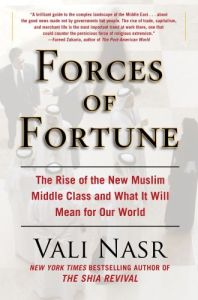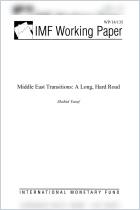Únase a getAbstract para acceder al resumen.

Únase a getAbstract para acceder al resumen.
Vali Nasr
Forces of Fortune
The Rise of the New Muslim Middle Class and What It Will Mean for Our World
Free Press, 2009
¿De qué se trata?
Are fiscal growth, trade, capitalism and a larger Muslim middle class the best tools to combat Islamic fundamentalism?
Recommendation
Since September 11, 2001, the media has saturated Westerners with information about radical Islam. Many people view Islam as a monolithically fundamentalist creed whose followers hate the West. International politics professor Vali Nasr addresses this misconception, explaining that the members of the expanding Muslim middle class, notably in Iran, Pakistan, Turkey and Dubai (as seen before its economic woes), want many of the same things that Westerners want, but within an Islamic framework. Readers may find this unexpected, but Nasr makes the journey understandable by serving as economist, investigator and tour guide. getAbstract, which recommends books but takes no stand on politics or religion (the opinions in the summary are those of the book's author), suggests his solid analysis particularly to those interested in these four breaking-news countries. While Nasr thinks religious extremism has peaked, he believes Islam is not yet ready for Western-type religious reform, though he sees that as a potential future path. He predicts that religious moderation will slowly evolve to trump fundamentalism, but that change must come from within the Muslim community.
Summary
About the Author
Tufts University professor Vali Nasr is an adjunct senior fellow at the Council on Foreign Relations and a senior fellow for the Dubai Initiative at Harvard University. The author of The Shia Revival, Democracy in Iran and Islamic Leviathan, he writes for major U.S. newspapers.





















Comment on this summary